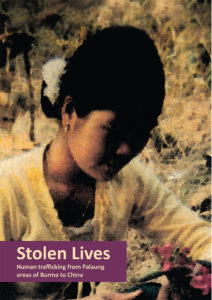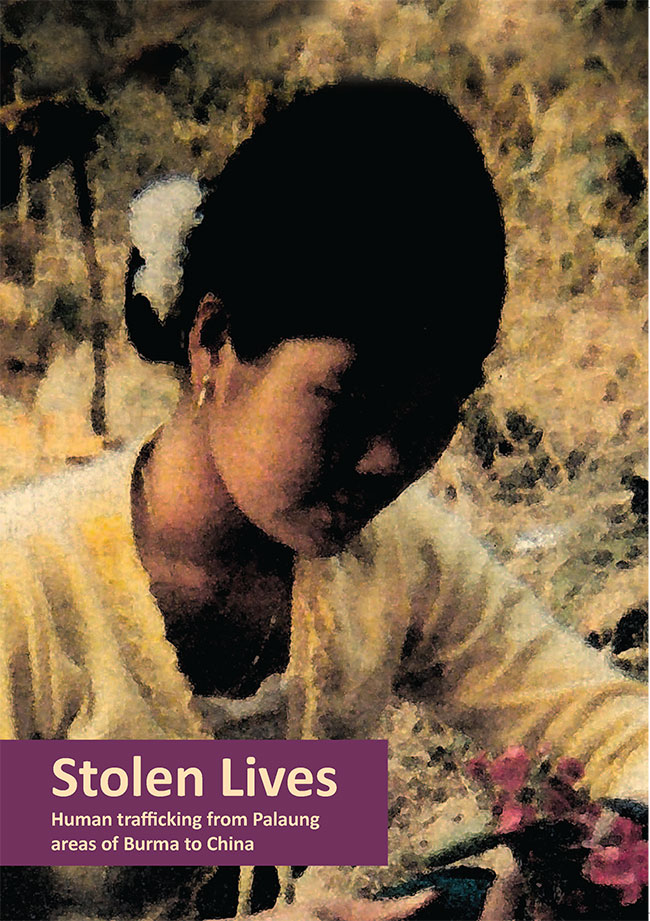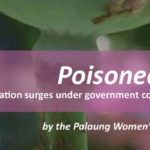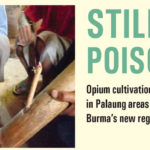Stolen Live (Human trafficking from Palaung areas of Burma to China)
 The Palaung Women’s Organization (PWO) has documented 72 cases of actual or suspected trafficking involving 110 people, which took place along the China-Burma border, mostly during the past six years. The majority of those trafficked were young Palaung women from tea farming communities in Namkham, Namhsan and Mantong townships.
The Palaung Women’s Organization (PWO) has documented 72 cases of actual or suspected trafficking involving 110 people, which took place along the China-Burma border, mostly during the past six years. The majority of those trafficked were young Palaung women from tea farming communities in Namkham, Namhsan and Mantong townships.
PWO surveys in villages from which women have been trafficked show that up to 41% of the population have migrated to work elsewhere. Large scale migration began after the surrender in 2005 of the Palaung State Liberation Army, which had controlled Palaung areas under a ceasefire agreement since 1991. There has been a surge of Burma Army troops and proxy militia into the area since the surrender, who have imposed increased controls and taxes on agriculture and trading. Together with rising prices of food commodities from Central Burma, and increasing costs of health and education, this has meant that tea farmers can no longer earn a living and young people have to leave home to survive. This has led to an alarming increase in the incidence of trafficking of women, men and children, mainly to China.
Most of those trafficked were tricked into travelling to China by being offered well-paid jobs on farms or in factories. In 25% of the cases, women were forced to marry Chinese men, with brokers receiving up to 25,000 Yuan (approx 3,800 USD) for the transaction. 10% were forced into the sex trade. Some ended up being used as live feed for leeches. Known destinations were mainly in Yunnan province, but some ended up as far east as Shandong.
A disturbing trend is that eleven of the cases were children under ten, five of whom were under one year old. Most were boys. Some of these children were simply kidnapped from their homes, but others were sold by parents who were alcohol or drug users. As highlighted by PWO in earlier reports, opium cultivation in Palaung areas has skyrocketed in recent years due to the profits being made by the Burma Army and its militia from the drug trade. This has led to increasing addiction among Palaung men, who not only sell off all their possessions to buy drugs but also their children.
In only eleven cases were the trafficked persons able to escape, some after years of forced marriage to Chinese men. Family members seeking to trace trafficked persons sought help in vain from local Burmese authorities and social organizations. In some cases perpetrators were arrested and jailed, but several paid bribes or fines and were then released.
The Burmese military regime has passed anti-trafficking legislation since 2005 and set up special anti-trafficking units, including at Muse on the China-Burma border. However, these measures appear to have had little effect, due to failure to address the structural root causes driving human trafficking.



